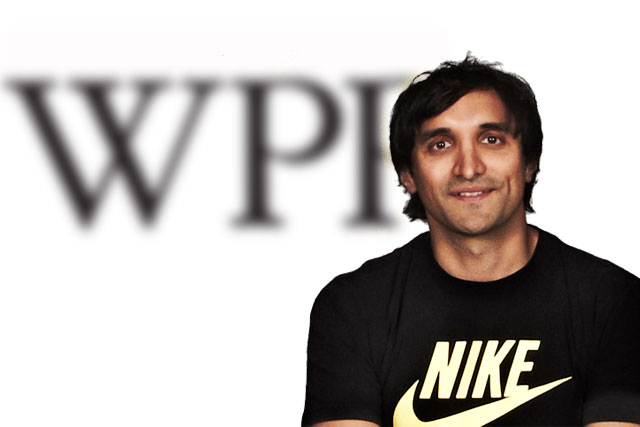
Speaking to ±±ľ©Čüłµpk10 alongside WPP’s chief executive Sir Martin Sorrell - Ahmed’s first boss since he launched the agency back in 1995 - the entrepreneur bristled at the idea joining the world’s largest marketing group could change the spirit that has propelled AKQA since it started its global expansion in 2001.
"I would just ask those people how would they see it changing?" he said. "What we are doing is adding to AKQA, we’re not taking anything away...
"One incredibly important point about the independence question, is that both Tom and I’s decision criteria has always been the next move we’ve just made [joining a network]. We’ve both wanted to make it for at least a couple of decades or more.
"When people talk about losing independence it’s because they think people might check-out, but for us, this is the day it has just started. For us, it starts today."
AKQA employs 1,160 staff in Europe, the US and parts of Asia, clients include Diageo, EDF, Gap, Google, Nike and Unilever. The £350 million deal represents WPP’s largest acquisition since its £1.1 billion investment in TNS in 2008, and geographical expansion is undoubtedly among the top priorities for AKQA moving forward.
Ahmed admits chairman Tom Bedecarre, and senior staff at the agency who have known about the five month courtship with WPP have expressed a strong interest in expanding into Brazil and Japan.
Sorrell said: "Ajaz has very bold ambitions for AKQA as a brand, as a global brand…
You can’t do everything at once so they have to layout their priorities and we will help them do that.
"We have structures in place, we have people in place, and we have funding. So that’s one thing geographically, and the other thing is functioning. We can help them build out their offer in a more sophisticated way. This is another stage of development."
WPP’s leader drew upon the success of the group’s comparable global businesses Ogilvy One, expected to turnover revenues in excess of $900m, and Wunderman, expected to cross a billion dollars this year, as ambitious examples of what AKQA could now expect.
He said: "It’s quarter of a billion dollars of revenues at the moment, there’s no reason why it shouldn’t be four or five times that size. That takes time if you do it organically.
The marriage between AKQA and WPP comes after five years of on-off negotiations. Sorrell admitted it was "third time lucky" for the WPP’s attempts to woo the business.
He said: "We were jilted twice, once very much at the alter once [when AKQA opted for a deal with GM in 2007] and a more ephemeral one, and then third time lucky. So the answer is you have to propose three times."
Ahmed light-heartedly countered: "We wanted to make sure they really wanted us."
WPP’s agency acquisition success is second to none, and Sorrell admits there are always questions raised about whether the dynamics of any business you take a majority stake in will be fundamentally changed once embedded.
"We get this a lot from journalists, but the clients certainly don’t think that’s the case," he said. "It is the same but more."
"We’ve talked to the top dozen or so clients of AKQA and the response has been uniformly good. They will be watching very carefully to see whether the business changes, whether it loses any of that vitality or whether it galvanizes that vitality.
"Even in those conversations there are clear opportunities for so-called revenue synergies."
Ahmed added: "I think independence is a mindset about staying hungry, staying creative, staying innovative. I think if you lose that mindset then you’re in trouble. But I think there’s lots of "independent" agencies that don’t have that mindset. There’s lots of examples of agencies in larger groups that do."
Any major reductions in staff requirements have been largely ruled out within the agency, with Sorrell saying when analysts ask about whether there are any cost-synergies to be made, "the answer is no".
He added: "If you look at AKQA, they’ve had three stages so far; the Francisco partner stage [2001], the GA stage [2008], both financial partners, and now I think they are at a different stage…
"If you look at the geographical spread of the business, it’s basically the United States and Western Europe. And the parts of the world that in the long-run are going to be far more interesting, the BRICS, the next 11, mist and all the Sivits. It’s up to Tom and Ajaz as to how they want to play it."
Follow Arif Durrani on Twitter:




.jpg)
.jpeg)
